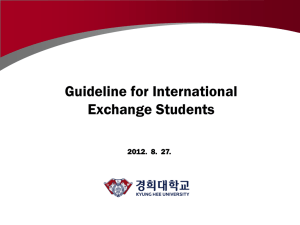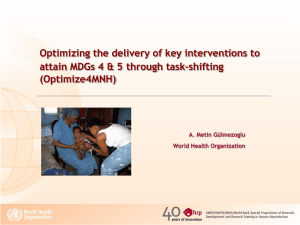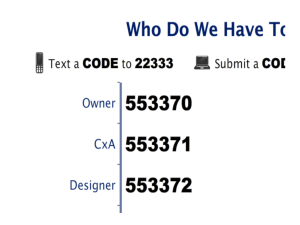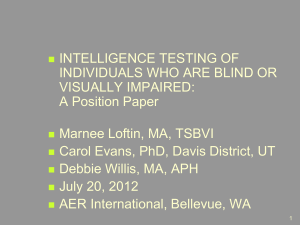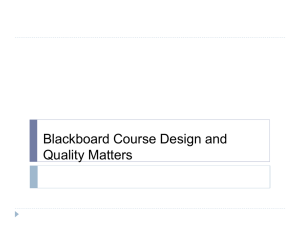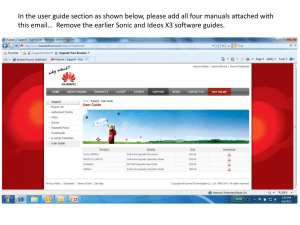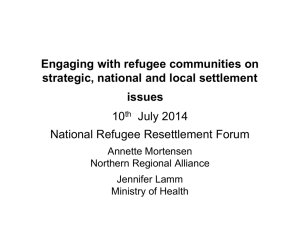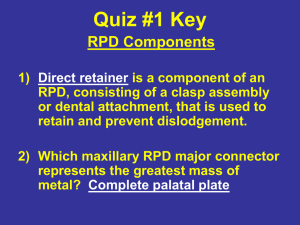PPt 15
advertisement
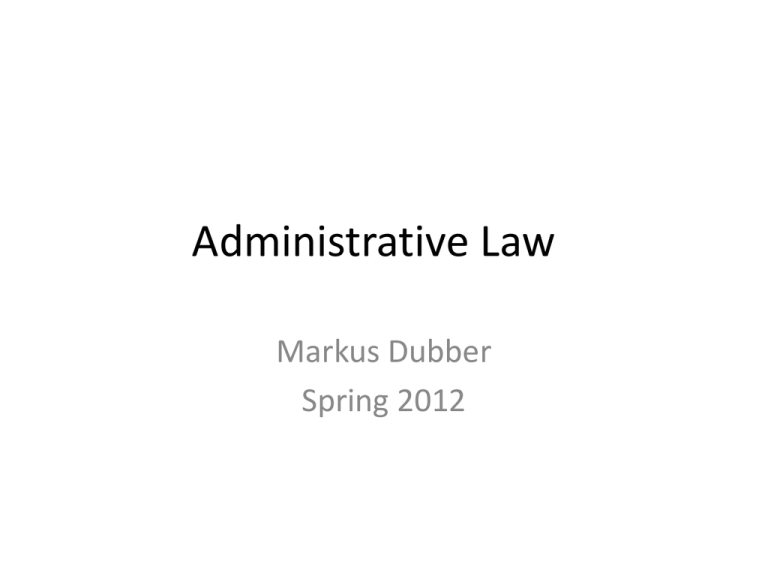
Administrative Law Markus Dubber Spring 2012 Thamotharem (Imm & Ref Bd) ‘04 • Refugee protection (torture/cruel and unusual treatment or punishment)? [Refugee Protection Division, RPD] – Fear of persecution by Tamil Tigers (see Suresh…): extortion; civil war; wealth— father works in Saudi Arabia; he is in Canada… – No: no well-founded fear of persecution, therefore not Convention refugee • Guideline 7: violates principles of natural justice/procedural fairness? No – The panel finds that the common-law duty of fairness requires the provision of a meaningful opportunity to be heard. Allowing the Refugee Protection Officer (RPO) or the member to question first is consistent with the common law duty of fairness. Questioning by any participant in the refugee determination process is aimed at trying to establish the factual basis for a claim. This includes questioning about inconsistencies or omissions or other aspects relevant to a claimant's overall credibility. Allowing the RPO or member to question first does not undermine the non-adversarial nature of refugee hearings. As well, the RPO plays a neutral role in the process and is not the decision maker. Therefore, the issue of an apprehension of bias does not exist. – In re N. (R.K.): • The RPD is an administrative tribunal and not a court. Administrative tribunals were created to deliver accessible and expert justice, fairly and expeditiously…. The RPD is a specialized tribunal with extensive direct experience in dealing with claimants sensitively and fairly. Thamotharem FCAppeal ’07: Making Admin Law Softer Still! • Issues – Procedural fairness? • No prob – Discretion (self-)fettering? • No prob – Rule vs. guideline… • No prob – Only proc issues—no sub! • Even if no prob with Guideline 7, then still wrong on merits?—not argued at FCA… • Background – Once upon a time, order of questioning matter of RPD member’s discretion • RPD tends to sit as single member, often without RPO [Refugee Protection Officer] … – Guideline 7 issued in ’03 to reduce backlog • Expeditiosity IRPA 159. (1) The Chairperson is, by virtue of holding that office, a member of each Division of the Board and is the chief executive officer of the Board. In that capacity, the Chairperson … (h) may issue guidelines in writing to members of the Board 161. (1) Subject to the approval of the Governor in Council, and in consultation with the Deputy Chairpersons and the Director General of the Immigration Division, the Chairperson may make rules respecting … (a) the activities, practice and procedure of each of the Divisions of the Board 162. (2) Each Division shall deal with all proceedings before it as informally and quickly as the circumstances and the considerations of fairness and natural justice permit. 165. The Refugee Protection Division and the Immigration Division and each member of those Divisions have the powers and authority of a commissioner appointed under Part I of the Inquiries Act and may do any other thing they consider necessary to provide a full and proper hearing. 170. The Refugee Protection Division, in any proceeding before it, (a) may inquire into any matter that it considers relevant to establishing whether a claim is well-founded; . . . Guideline 7 19. In a claim for refugee protection, the standard practice will be for the RPO to start questioning the claimant. If there is no RPO participating in the hearing, the member will begin, followed by counsel for the claimant. Beginning the hearing in this way allows the claimant to quickly understand what evidence the member needs from the claimant in order for the claimant to prove his or her case. 23. The member may vary the order of questioning in exceptional circumstances. For example, a severely disturbed claimant or a very young child might feel too intimidated by an unfamiliar examiner to be able to understand and properly answer questions. In such circumstances, the member could decide that it would be better for counsel for the claimant to start the questioning. A party who believes that exceptional circumstances exist must make an application to change the order of questioning before the hearing. Let’s Go! • Standard of review (who cares/quick work—see Ahmed (CICB)) – Correctness (proc fair, stat int(!), unlawful fettering) • Doesn’t matter—passes even correctness muster – Patent unreasonableness (rule vs. guideline) [fact?] • Substantive choice of procedure… • Procedural fairness – Baker! (spectrum informal-judicial…) • Adjudicative + final + importance = “higher level” of proc fairness • No prob--plenty of fairness – – – – Guideline 7: not just faster, but better (fairer?), by “focusing” the hearing “RPD members receive training to sensitize them” (Baker!) May not question “in an overly aggressive and badgering manner”! Let’s be realistic: process can’t adopt adversarial model used in courts given “the inquisitorial and relatively informal nature of the hearing established by Parliament, as well as the RPD's high volume case load” – Not adversarial: “that the member or the RPO may ask probing questions does not make the proceeding adversarial in the procedural sense“ (adversarial = bad?) – Anyway, non-adversarial/inquisitorial good: “fair adjudication of individual rights is perfectly compatible with an inquisitorial process”; “Inquisitorial processes of adjudication are not unfair simply because they are relatively unfamiliar to common lawyers.” (inquisitorial = bad?) Next: Unlawful Fettering: Warm-Up • Balance of certainty/consistency vs. flexibility – Rule vs. standard… • Hard law vs. soft law [high law/low law; law vs. police] – Rule (law!) vs. guideline • Rigid, hard to change vs. adjustable, easy to change… • • Discretion here, discretion there, discretion everywhere – There are limits! (citing Roncarelli) – But it’s inevitable (even re: rules) (citing Baker) The line between law and guideline was further blurred by Baker where, writing for a majority of the Court, L'Heureux-Dubé J. said that the fact that administrative action is contrary to a guideline "is of great help" in assessing whether it is unreasonable – Soft law matters! – It even aids consistency! • See full board meeting in Consolidated-Bathurst – “mere guideline” vs. “mandatory” • Ainsley (policy statement by Ont Securities Commission re: “public interest” in securities marketing); US Sentencing Guidelines! – What’s a guideline? Context…functional/purposive approach • Vs. regulation • Vs. order • Vs. rule • Vs. law • Etc etc etc Unlawful fettering: The Real Deal • Soft law/nudge only, so…is the fettering undue? – Text of norm(s), rather than (perceived) effect • So much clearer/easier to divine (Willis?) – Policy on the Use of Chairperson's Guidelines (a guideline’s guideline!) • s.6: guidelines not legally binding – Intro to Guideline 7:"The guidelines apply to most cases heard by the RPD. However, in compelling or exceptional circumstances, the members will use their discretion not to apply some guidelines or to apply them less strictly" – Guideline 7: “standard” practice “will be” (less obligatory than “must”???), may vary order "in exceptional circumstances” – Regrettably, some members have misinterpreted the guideline as mandatory! • That’s their problem, not the guideline’s • Performing “adjudicative functions without improper influence from others, including the Chairperson (Adams!) and other members of the Board” – But agencies must be “free to devise processes for ensuring an acceptable level of consistency and quality in their decisions” • Consolidated-Bathurst! • No (formal) sanctions for deviation – Though monitoring (voluntary completion of hearing information sheet requesting justification for deviation) Nothing to see here… • No reasonable person would suspect lack of independence/undue fettering Adjudicative "independence" is not an all or nothing thing, but is a question of degree. The independence of judges, for example, is balanced against public accountability, through the Canadian Judicial Council, for misconduct. The independence of members of administrative agencies must be balanced against the institutional interest of the agency in the quality and consistency of the decisions, from which there are normally only limited rights of access to the courts, rendered by individual members in the agency's name. Rule vs. guideline • Ainsley, once more – Securities Commission’s policy statement = “mandatory provision having the effect of law” – Distinguished • Power: Sec. Commission had no power to issue guidelines • Audience: objects of regulation, rather than agency members – Internal/external (acoustic separation…) • Yet more reasons – Practice: Many boards have power to make rules—not just guidelines—re: procedure (see Ont Stat Powers Proc Act—CICB (Ahmed)!) – Significance: Just a minor change (filling in detail), nothing to see here… [de minimis??] – Same difference: Rules = guidelines; they too permit deviation – Statute: Explicit grant of power to issue guidelines re: procedure Ergo: Labels, Schmabels On the basis of the foregoing analysis, I conclude that, on procedural issues, the Chairperson's guideline-issuing and rule-making powers overlap. That the subject of a guideline could have been enacted as a rule of procedure issued under paragraph 161(1)(a) will not normally invalidate it, provided that it does not unlawfully fetter members' exercise of their adjudicative discretion, which, for reasons already given, I have concluded that it does not. In my opinion, the Chairperson may choose through which legislative instrument to introduce a change to the procedures of any of the three Divisions of the Board. Parliament should not be taken to have implicitly imposed a rigidity on the administrative scheme by preventing the Chairperson from issuing a guideline to introduce procedural change or clarification. [what’s the point of the distinction, then?] I do not say that the Chairperson's discretion to choose between a guideline or a rule is beyond judicial review. However, it was not [patently?] unreasonable for the Chairperson to choose to implement the standard order of questioning through the more flexible legislative instrument, the guideline, rather than through a formal rule of procedure. – e.g., overlapping crime definitions…

